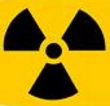Recent developments in a Swiss nuclear smuggling incident have reawakened global concern about the lasting damage the nuclear smuggling ring led by Abdul Qadeer Khan may have inflicted on the nuclear nonproliferation regime. Although it is unclear if, during his visit to Washington last week, U.S. authorities asked Pakistani Prime Minister Yousuf Raza Gilani for additional information about Khan, who has requested a relaxation of his terms of detention, recent revelations about the Swiss incident underscore the importance of continuing to investigate the ring. In 2004, German authorities arrested Swiss engineer Urs Tinner for allegedly aiding Libya's now-abandoned nuclear program. Tinner had overseen the construction of over 2,000 gas centrifuge parts while working for Malaysia-based Scomi Precision Engineering (SCOPE). Under the direction of a Sri Lankan middleman, Tinner purportedly trained Libyans in the assembly and use of the centrifuges, which were subsequently loaded onto a German freighter bound for Libya. Western intelligence agencies learned of the transaction and diverted the ship to Taranto, Italy, where the port authorities seized the suspect cargo. In October 2004, Tinner was arrested in Germany, and he was extradited to Switzerland in 2005. According to media reports, Tinner was a key participant in Abdul Qadeer Khan's nuclear smuggling ring. The father of Pakistan's nuclear program, Khan sold nuclear weapons technology and blueprints to states of proliferation concern such as Libya, Iran, and North Korea. Following Tinner's arrest, Swiss authorities detained two other members of the Tinner clan -- Marco Tinner, Urs' brother, and Friedrich Tinner, their father -- for suspicious nuclear-related activities.
Computer Codes and Nuclear Nightmares: Swiss Case Shines Light on Khan Ring

